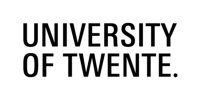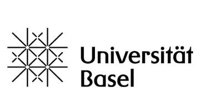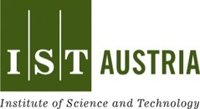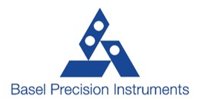1. University of twente

The fabrication of hybrid superconductor-semiconductor nanowire devices and quantum transport experiments will be performed at the University of Twente (UT). Specifically, activities will be performed in the cleanroom of the MESA+ Institute for Nanotechnology. MESA+ is one of the largest nanotechnology research institutes in the world. The research in the NanoElectronics group entails the development of novel (concepts for) electronic devices and systems with nanoscale dimensions for application in future generations of electronics and information storage. The research in the Quantum Transport in Matter group focuses on state-of-the-art synthesis of topological thin films and nano-devices, as well as investigations of the superconducting and spintronic aspects of transport in topological devices.
Principal Investigators:
Floris Zwanenburg - NanoElectronics group
Alexander Brinkman - Quantum Transport in Matter
2. University of Basel

Device fabrication as well as quantum transport measurements, including experiments at low temperatures, will be carried out at the University of Basel (UBAS). The nano-physics groups share and operate a clean room facility, particularly geared towards for the production of a wide palette of nanostructures for quantum transport experiments. The leading experts on Majorana fermions and induced superconductivity in semiconductor systems will provide the essential theoretical foundation of the project and contribute to the interpretation of experiments.
Principal Investigators:
Christian Schönenberger - Quantum- and Nanoelectronics
Dominik Zumbühl - Quantum Coherence Lab
Daniel Loss - Condensed Matter Theory & Quantum Computing
Jelena Klinovaja - Condensed Matter Theory & Quantum Computing
3. Institute of Science and Technology Austria

Device fabrication and quantum transport experiments will be performed at the Institute of Science and Tecnology Austria. Katsaros’ research team conducted the first demonstration of single-hole transport in individual SiGe selfassembled quantum dots, and realization of a resonant supercurrent transistor in SiGe.
Principal Investigator:
Georgios Katsaros - Katsaros Group; Nanoelectronics group
4. Eindhoven University of Technology

Material science reserach is necessary for high-quality synthesis of complex nanomaterials: growing defect-free Ge wires with a Si shell, and a superconductor on top demands top-notch material scientists. Bakkers from TUE has been involved in the first experimental papers on the observation of Majorana fermions.
Principal Investigator:
Erik Bakkers - Advanced Nanomaterials and Devices
5. Basel Precision Instruments

Basel Precision Instruments (BASPI) is an early stage start up that offers and develops ultra-low noise ultra-high precision electronics fueling the quantum revolution. BASPI’s products, including some of the most high-resolution voltage sources and lowest-noise amplifiers available, are already enabling cutting-edge scientific discoveries in over 30 research laboratories across the globe.
Principal Investigator:
Parisa Fallahi - Basel Precision Instruments
6. nanoPHAB

nanoPHAB® is a novel pure play foundry in photonics and nanotechnology that can provide advance fabrication support to industrial and academic customers willing to develop unique technologies for research or commercialization in many application fields. nanoPHAB® can provide the nanometer resolution required by technologies based on advanced sub-micrometer physics and play an important role in the research and development of novel Si/Ge nanowires devices and applications.
Principal Investigator:
Francesco Pagliano - nanoPHAB







